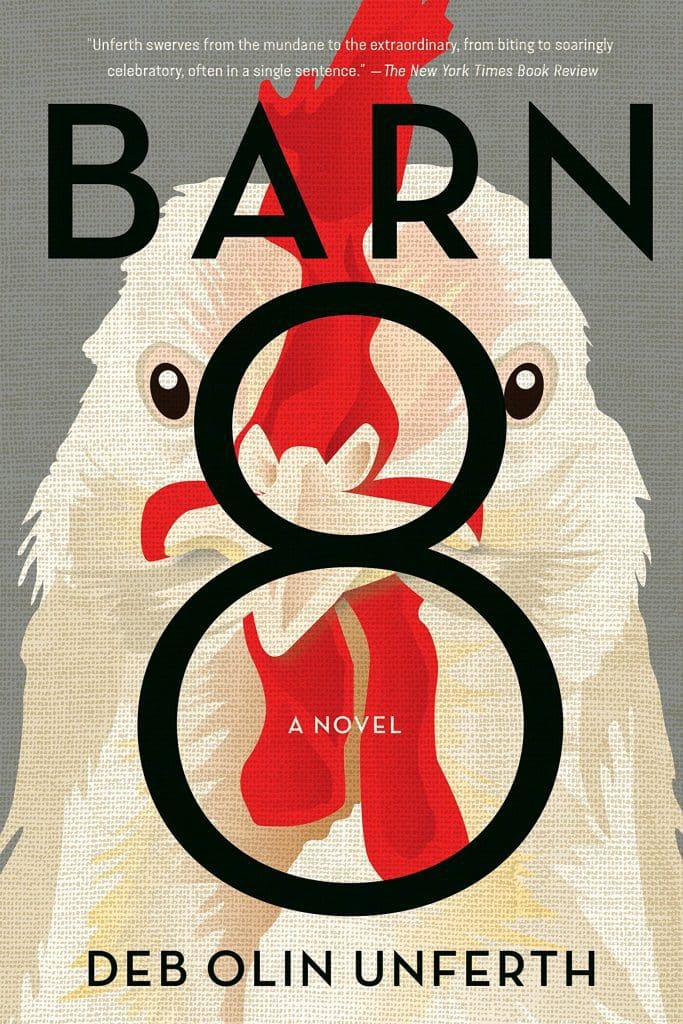The premise of Deb Olin Unferth’s latest novel, Barn 8 (252 pages; Graywolf Press), involves the heist of a comically extreme number of chickens—yet to label the novel a mere comedy would be tantamount to calling Kurt Vonnegut a “humor writer.” Sure, the book is funny, quite funny, but it is much more. Unferth is tackling, with great wit and technical skill, topics as pressing as Big Agriculture, the humane treatment of animals, and the impossibility of maintaining ideological purity in any social movement. The reality is that Americans love eggs: free range or not, we will eat as many […]
‘Barn 8’ by Deb Olin Unferth: A Comically Extreme Heist
by Zack Ravas

